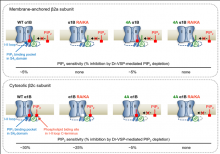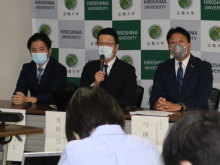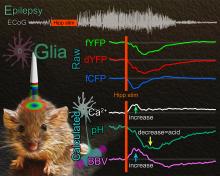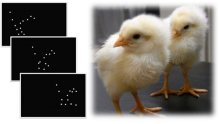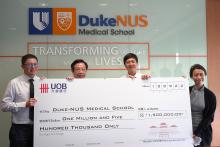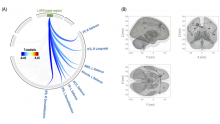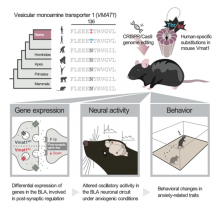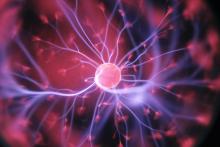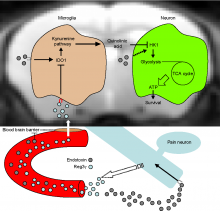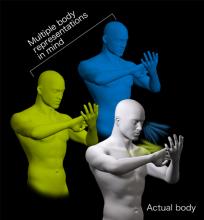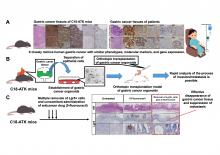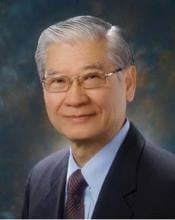Brain
News
09 Dec 2022
Asia Research News monitors the latest research news in Asia. Some highlights that caught our attention this week are a coat that can make you invisible to AI cameras, a fossilized whale skeleton found in a river valley, and hope for humans after our Y chromosome disappears.
01 Dec 2022
Therapeutically superior mesenchymal stem cells derived from the cranial bone offer hope in reversing paralysis and language impairment in moderate to severe cases of stroke.
25 Nov 2022
Asia Research News monitors the latest research news in Asia. Some highlights that caught our attention this week are a new planet that orbits a dying star, a map of all the airborne microbes, and the potential to protect our organs by hibernating during surgery.
25 Nov 2022
Researchers at Tohoku University have shown that astrocytes in the mouse brain exhibit an acid response with intensified epileptic seizures. The astrocytes’ acid response could lead to the amplification of excitatory neuronal signals and be the underlying drive for generating plasticity for epileptogenesis.
18 Nov 2022
Exploring virtual human-agent relationships, A fly protein gives clue for human cancers, Rare earth elements formed in neutron star mergers 💥, One-stop process for hydrogen production. Read all in the November's Editor's Choice plus Upcoming event K4DM KNOWLEDGE MARKETPLACE – Bangkok 2022: Exchanging Ideas for a Democratic Myanmar.
18 Nov 2022
Disturbed transmission via nicotinic acetylcholine receptors in chick fetuses impairs the hatchlings’ preference for animate objects—similar to what is seen in autism spectrum disorder in humans.
04 Nov 2022
Asia Research News monitors the latest research news in Asia. Some highlights that caught our attention this week are jellyfish-like fossils, mythic diseases, and a transistor that can detect cancer cells.
07 Oct 2022
Researchers from Hokkaido University and Toppan have developed a method to detect build-up of amyloid β in the brain, a characteristic of Alzheimer’s disease, from biomarkers in blood samples.
30 Sep 2022
Asia Research News monitors the latest research news in Asia. Some highlights that caught our attention this week are an algorithm that can detect epilepsy from brain scans, the first National Robotics Tournament in Vietnam, and how being lonely or depressed can accelerate aging.
13 Sep 2022
The Memorandum of Understanding signed between The Ngee Ann Kongsi and Duke-NUS Medical School emphasises the need for more research as treatment and prevention options are currently limited for conditions such as Parkinson’s disease.
26 Aug 2022
Asia Research News monitors the latest research news in Asia. Some highlights that caught our attention this week are dogs crying happy tears when their owner comes home, a new early warning system for solar flares, and burial practices that can tell us about ancient migration patterns.
26 Aug 2022
Researchers have made perovskite solar cells more efficient and stable, A new cause of Parkinson's related cell death, Hibernating superpower is in the blood, Common mechanism for cancer and atherosclerosis, COVID-19 antibody skin-based test. Read all in the August's Editor's Choice plus an Interview with Prof Sutee Yoksan on The story behind the new dengue vaccine & this month's Asia Research News 2022 magazine pick - The evolutionary history of puddle frogs.
19 Aug 2022
Asia Research News monitors the latest research news in Asia. Some highlights that caught our attention this week are particles from the Ryugu asteroid that look like water, mating strategies used by male spiders, and the effect of trimming mouse whiskers on their social development.
12 Aug 2022
Asia Research News monitors the latest research news in Asia. Some highlights that caught our attention this week are the potential use of fish ear bones to tell us about the seawater temperature millions of years ago, how hotter nights can lead to an increase in global mortality, and how Japanese children’s walking development differs to other countries.
11 Aug 2022
Human brains learn patterns over time and we don’t even realize it. New insight into how this works could improve learning and other cognitive processes.
05 Aug 2022
New research using genome editing technology has allowed scientists to create a model and assess a gene mutation associated with neuropsychiatric disorders in humans. The study has revealed how the mutation functions in the brain and affects anxiety and sociality.
29 Jul 2022
Asia Research News monitors the latest research news in Asia. Some highlights that caught our attention this week are the discovery of an ancient palace that could be connected to Genghis Khan, the joy of letting your mind wander, and a wound dressing made from frog skin that promotes healing.
01 Jul 2022
Asia Research News monitors the latest research news in Asia. Some highlights that caught our attention this week are cat-to-human COVID transmission, AI technology that interprets chicken squawks, and a lucky student’s experiment that will be performed in space.
13 May 2022
Asia Research News monitors the latest research news in Asia. Some highlights that caught our attention this week are flower scent patterns, lensless cameras, and puffs of air that make you feel like you’re playing tennis.
27 Apr 2022
Hokkaido University researchers have shown how chronic pain leads to maladaptive anxiety in mice, with implications for treatment of chronic pain-related psychiatric disorders in humans.

25 Apr 2022
A recent infant study suggests that the visual experience in daily life contributes to the emergence of upper visual field bias for faces.
06 Apr 2022
Osaka City University* study suggests memories are formed through an integration across brain regions via burst activity in amygdala-prefrontal neuronal ensembles during memory acquisition, and then hippocampal-prefrontal synchrony during post-experience sleep. (Osaka City University has now changed its name as Osaka Metropolitan University)
08 Mar 2022
A research team led by the National Institute for Physiological Sciences and joined by Hokkaido University explored the role of pain neurons in the regulation of endotoxic death. They found that peptide named Reg3γ acts as a pain neuron-enriched brain-targeted hormone that protects the host from endotoxic death.
21 Feb 2022
A great deal of discussion is underway on what appears to be the latest wave of migration from Sri Lanka. While the exact scale and nature of youth migration remain unclear, the costs of brain drain dominate these discussions. The brain drain concern is valid, yet focusing on it alone can limit our understanding of the complex implications of migration. This blog argues that apart from its challenges, youth migration can also present some surprising opportunities for socio-economic development if strategically managed.
21 Jan 2022
Our brain maps out our body to facilitate accurate motor control. For a century, the body map has been thought to have applied to all types of motor actions. Now, a research group has revealed that the body relies on multiple maps based on the choice of motor system.
22 Dec 2021
We have succeeded in establishing a mouse model that develops gastric cancer closely resembling advanced human gastric cancer. Using this model, we have discovered gastric cancer stem cells, i.e. Lgr5+ gastric cancer cells, essential for the development, maintenance, and metastasis of cancer. Our study provides an experimental system that enables detailed analysis of highly malignant gastric cancer and is expected to lead to the development of a breakthrough treatment for advanced human gastric cancer.
09 Dec 2021
Micro-plastics cross blood brain barrier, Stomach cancer atlas, Omicron variant isolated, 120-year-old reaction turned on its head and Reporting through the coup, all in the December Editor's Choice. Plus our latest podcast: Decentralization and Democracy in Myanmar.
23 Nov 2021
A joint research team at the Division of Biotechnology, DGIST, confirmed that microplastics(MPs) ingested orally accumulate in the brain and act as neurotoxic substances.
22 Nov 2021
The joint research team of Prof. Hongsoo Choi(DGIST) & Prof. Sung Won Kim(Seoul St. Mary’s Hospital), developed an hNTSC-based microrobot for minimally invasive delivery into the brain tissue via the intranasal pathway
Events
Sorry, no events coming up for this topic.
Researchers
Sorry, no researchers coming up for this topic.
Giants in history
David T. Wong (born 1936) is a Hong Kong-born American neuroscientist who is best known for discovering the antidepressant drug fluoxetine, better known as Prozac.


